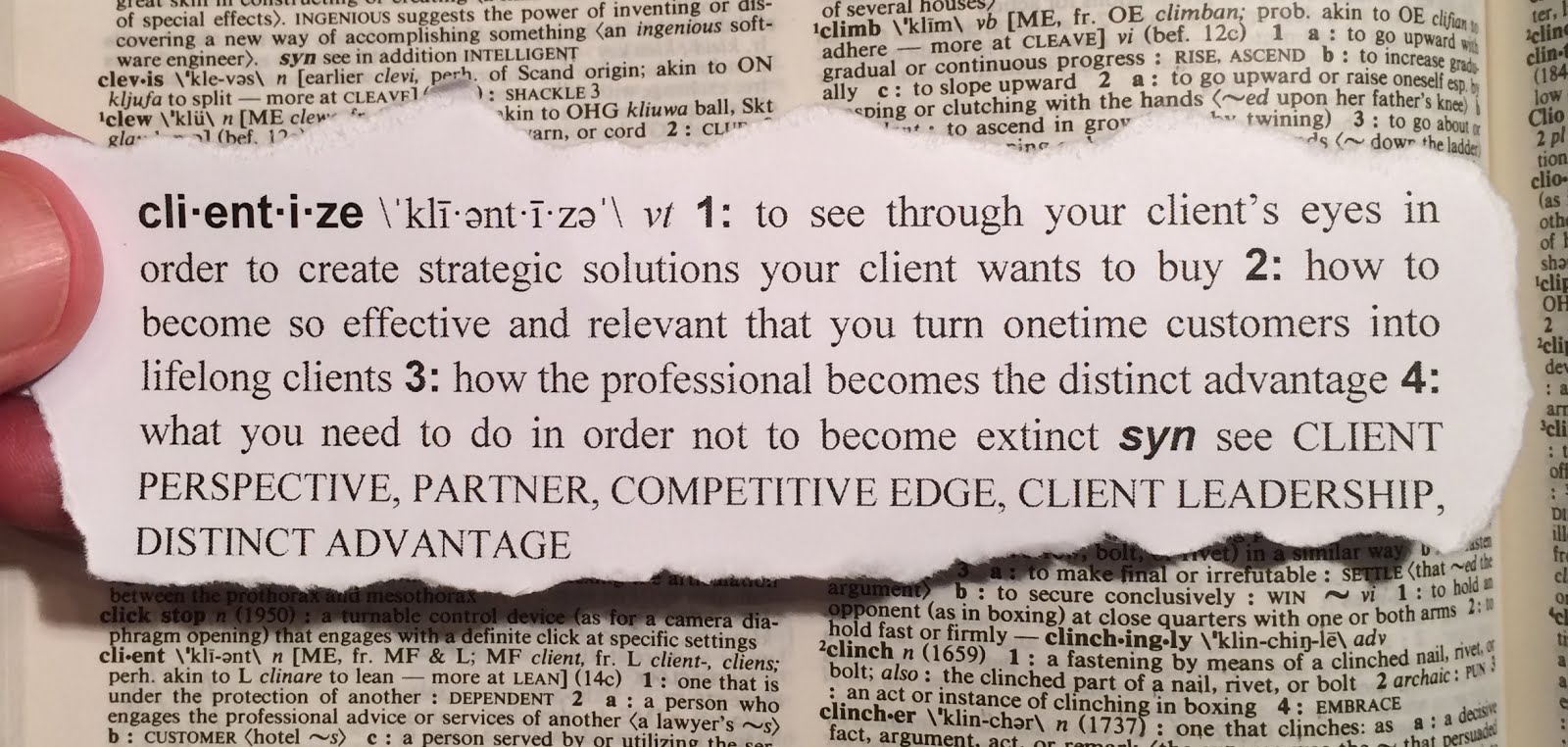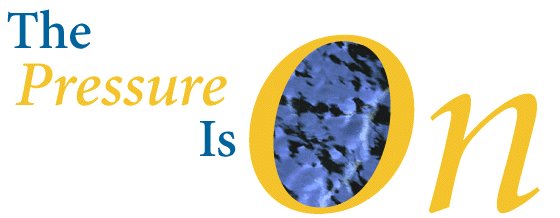How often do you smile?
Seldom ____
Sometimes ____
Often ____
It seems that there are certain people who never smile. Why is it that these people can't smile? Is it born of a gloomy outlook on life? Often it's because of a tainted perspective and outlook on life that is brought into work.
We are all too familiar with the surly serving person who waits on us at a restaurant. It seems like we are a bother to them as they project to us a feeling of why are these people here intruding on my time and my restaurant? We have also been greeted with a frown from the cashier at the checkout line--which makes us wonder why we shop there at all.
We have all read that the face of another signals to us the person's disposition and even possibly the person's character. The face reveals to us many things about the other person. If this is true, what does an authentic smile do? A smile conveys warmth, an invitation to engage, and a possible positive attitude. At very least--it's certainly more inviting than a frown.
THE FROWN AND ITS IMPACT
A frown from a leader signals to us disaster. We have all been in those kinds of meetings. The frown from a leader is usually the precursor to something bad that is about to occur. It tells us that we are about to have our world turned upside down. And we grip for the impact. We are on guard. We automatically become defensive, searching for things that we possibly did or something that went wrong. And this puts us on a heightened state of alert.
But the frown, as we have also learned, can just be a gloomy disposition in the other person. It is not a precursor. It has just become a habit--a very bad habit--and has little meaning in the originator about us. However, it does have its affect. It signals to the organization, don't take risks, don't step out and innovate, don't come up with new ideas, in essence it is the great intimidator and great destroyer of the modern organization that needs exactly those things it impedes.
When you do use a frown--you are signaling to others your displeasure with someone's behavior, attitude, or your feelings. And it can have a detrimental negative ripple affect across the organization. If you don't think people are on the lookout for how you feel, allow me to tell you a quick, but true story.
We had a large project with a large Fortune 500 insurance company. I headed up the office as managing director and I had just finished a meeting our client's CFO. It was a good meeting. But as I was walking from his office across the street to another building that housed our project team, several people were looking out the window and saw me. I must have been deep in thought--because to the people in the building--my team who saw me--it must have appeared that I wasn't happy. They reached the conclusion that the meeting with the CFO must have been a bad one. And it was not long before everyone on the project (some 130 people) "knew" I was not happy and therefore "knew" my meeting had not gone well. According to one of the people who had the courage to tell me this story, I signaled to them that our project was not performing.
Just look at the leaps in assumptions that these people made. Because I was not smiling (which I normally do), they assumed that the meeting with the CFO had not gone well. Which to them meant the client was not happy with the project they were working on (notice how they personalized the interpretation). And some people even thought--according to my confidant--that the project was in jeopardy of being shut down. Notice the chain reaction.
There are times when we are not going to be happy. There are times when a frown is actually appropriate. The lack of a smile on our faces signal our displeasure with an issue that should have been handled better. The lack of a smile may be because of an illness of a friend or family member. But there are times when we are frowning way too much, and you have to ask yourself, do you do this too much, too often or at inappropriate times?
A SMILE AND ITS AFFECTS
A smile conveys warmth, an invitation to engage, to participate, and positiveness. It deals out dignity and projects value and team-centeredness for the most part. The answer to the question at the beginning of this piece should be "often." If your answer was "sometimes" or "seldom" you have to ask why? Why create a problem when there isn't one? Creating a smile for those who don't smile often takes some getting used to. You have to work on it minute to minute. The smile can lift and convey value to the receiver.
When you greet others with a smile, no matter what is on your mind, you are taking the first step forward in engaging with the person and demonstrating that you consider this person of value. When you smile at the other person even if it's just a passing in the hallway, you are now present with the other person. The smile is a great encourager. It gives the other person courage. It signals to others that they are of value. And it gets people to give it their all.
Of course, you can't fake an authentic smile. When someone tries to fake a smile they appear to be disingenuous, a liar, a person who can't be trusted. A faked smile is like a wolf baring its fangs to ward off predators and signals get ready to be attacked.
Isn't it nicer to be greeted by an authentic warm smile than a cold authentic frown? We know this is true. And if we know it, why don't we take the time and make the effort to do something about it? Our behavior does matter. And while a smile doth not the leader make, it does contribute to the aura of the leader and can distinguish you accordingly.
TAKE ACTION
Seldom ____
Sometimes ____
Often ____
It seems that there are certain people who never smile. Why is it that these people can't smile? Is it born of a gloomy outlook on life? Often it's because of a tainted perspective and outlook on life that is brought into work.
We are all too familiar with the surly serving person who waits on us at a restaurant. It seems like we are a bother to them as they project to us a feeling of why are these people here intruding on my time and my restaurant? We have also been greeted with a frown from the cashier at the checkout line--which makes us wonder why we shop there at all.
We have all read that the face of another signals to us the person's disposition and even possibly the person's character. The face reveals to us many things about the other person. If this is true, what does an authentic smile do? A smile conveys warmth, an invitation to engage, and a possible positive attitude. At very least--it's certainly more inviting than a frown.
THE FROWN AND ITS IMPACT
A frown from a leader signals to us disaster. We have all been in those kinds of meetings. The frown from a leader is usually the precursor to something bad that is about to occur. It tells us that we are about to have our world turned upside down. And we grip for the impact. We are on guard. We automatically become defensive, searching for things that we possibly did or something that went wrong. And this puts us on a heightened state of alert.
But the frown, as we have also learned, can just be a gloomy disposition in the other person. It is not a precursor. It has just become a habit--a very bad habit--and has little meaning in the originator about us. However, it does have its affect. It signals to the organization, don't take risks, don't step out and innovate, don't come up with new ideas, in essence it is the great intimidator and great destroyer of the modern organization that needs exactly those things it impedes.
When you do use a frown--you are signaling to others your displeasure with someone's behavior, attitude, or your feelings. And it can have a detrimental negative ripple affect across the organization. If you don't think people are on the lookout for how you feel, allow me to tell you a quick, but true story.
We had a large project with a large Fortune 500 insurance company. I headed up the office as managing director and I had just finished a meeting our client's CFO. It was a good meeting. But as I was walking from his office across the street to another building that housed our project team, several people were looking out the window and saw me. I must have been deep in thought--because to the people in the building--my team who saw me--it must have appeared that I wasn't happy. They reached the conclusion that the meeting with the CFO must have been a bad one. And it was not long before everyone on the project (some 130 people) "knew" I was not happy and therefore "knew" my meeting had not gone well. According to one of the people who had the courage to tell me this story, I signaled to them that our project was not performing.
Just look at the leaps in assumptions that these people made. Because I was not smiling (which I normally do), they assumed that the meeting with the CFO had not gone well. Which to them meant the client was not happy with the project they were working on (notice how they personalized the interpretation). And some people even thought--according to my confidant--that the project was in jeopardy of being shut down. Notice the chain reaction.
There are times when we are not going to be happy. There are times when a frown is actually appropriate. The lack of a smile on our faces signal our displeasure with an issue that should have been handled better. The lack of a smile may be because of an illness of a friend or family member. But there are times when we are frowning way too much, and you have to ask yourself, do you do this too much, too often or at inappropriate times?
A SMILE AND ITS AFFECTS
A smile conveys warmth, an invitation to engage, to participate, and positiveness. It deals out dignity and projects value and team-centeredness for the most part. The answer to the question at the beginning of this piece should be "often." If your answer was "sometimes" or "seldom" you have to ask why? Why create a problem when there isn't one? Creating a smile for those who don't smile often takes some getting used to. You have to work on it minute to minute. The smile can lift and convey value to the receiver.
When you greet others with a smile, no matter what is on your mind, you are taking the first step forward in engaging with the person and demonstrating that you consider this person of value. When you smile at the other person even if it's just a passing in the hallway, you are now present with the other person. The smile is a great encourager. It gives the other person courage. It signals to others that they are of value. And it gets people to give it their all.
Of course, you can't fake an authentic smile. When someone tries to fake a smile they appear to be disingenuous, a liar, a person who can't be trusted. A faked smile is like a wolf baring its fangs to ward off predators and signals get ready to be attacked.
Isn't it nicer to be greeted by an authentic warm smile than a cold authentic frown? We know this is true. And if we know it, why don't we take the time and make the effort to do something about it? Our behavior does matter. And while a smile doth not the leader make, it does contribute to the aura of the leader and can distinguish you accordingly.
TAKE ACTION
- Take inventory of your daily smiles. How often do you smile versus frown? Ask family members, your trusted colleagues, and friends about your ability to smile. Find out how often according to them that you do smile. Ask if your smile seems real and authentic or does it appear contrived and fake.
- Take your smile and combine it with a warm handshake and warm eye contact. This will help enliven your smile and convey a feeling of trust, encouragement, and welcoming. It will extinguish the possible signal of being fake that sometimes comes from a quick smile.









